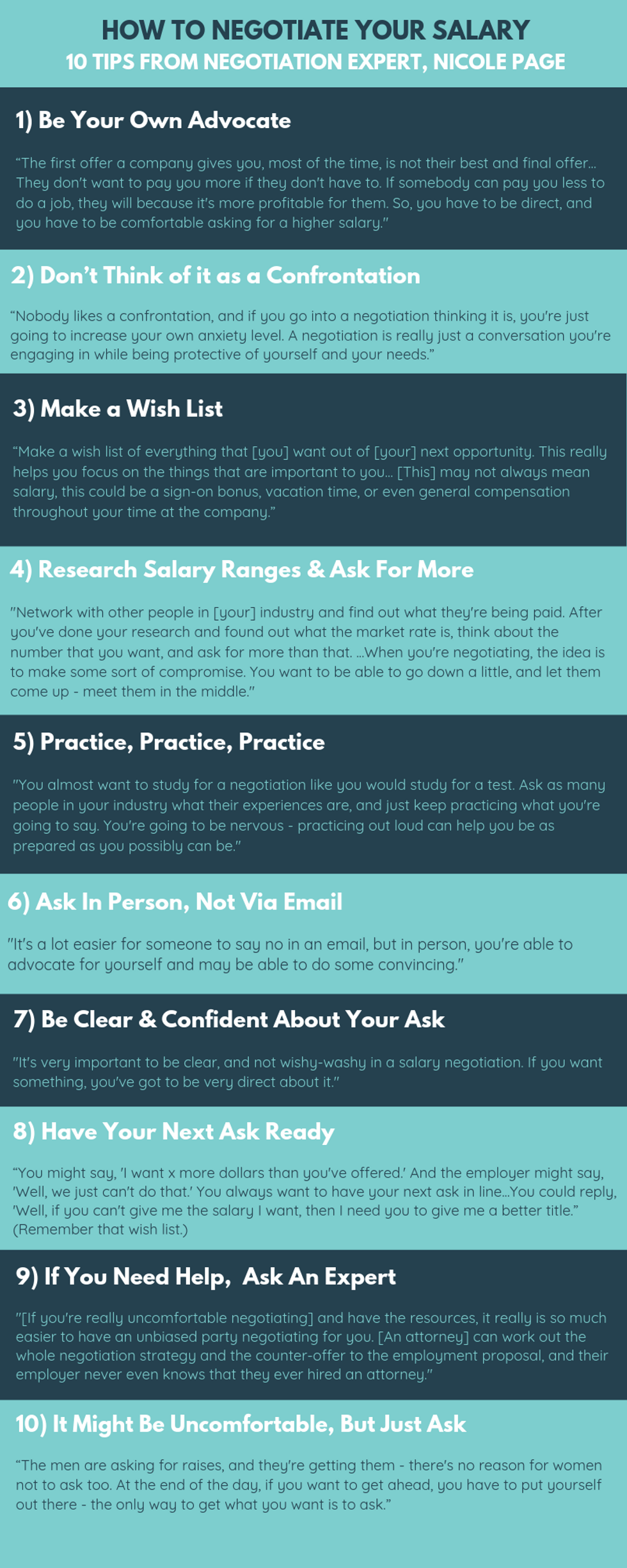"How much do you want?" can feel like a trick question when you're negotiating salary.
The first time I was asked this question, I had no idea what to say. I just knew that what I'd been offered wasn't enough. Having relocated from the U.S. to Argentina just a month prior, I was still learning the market and was worried about having my offer rescinded if I asked for too much. Knowledge is power in a negotiation, and in my ignorance of local norms and rates, I found myself feeling powerless and frustrated.
The hiring manager seized on my silence and asked me another question: "What's the minimum you'd accept?" Not knowing how to stall for more time, I blurted out my actual minimum. He flashed a toothy grin and said, "Done." I knew then and there that I'd gone way too low — his smile said it all.
I broke two cardinal rules of negotiation that day:
1) Think about the number you want and ask for more
2) Know your value in the market
I went home kicking myself for flubbing the negotiation and not asking for what I really wanted/deserved.
Some research has shown that women are much less likely to negotiate salary than men; an oft-cited study of MBA grads from Carnegie Mellon showed that only 7% percent of women negotiated their initial salary offers as compared to 57% percent of men. Other more recent data has shown that women do now negotiate at the same rate as men. Either way, the reality remains that as women, we are often socialized to be agreeable (see point #2 below)... and negotiating feels like the opposite of people pleasing, so it can be tough to do. All the same, it's of vital importance that we keep having these conversations.
When we don't negotiate, what's holding us back?
- We (erroneously) believe that what we've been offered is what we deserve — Economist and negotiation expert Linda Babcock said it best, "Women tend to assume that they will be recognized and rewarded for working hard and doing a good job. Unlike men, they haven't been taught that they can ask for more."
- We've been socialized to be agreeable, and we face backlash when we aren't — As women, we're taught to go with the flow and please others. And for the first half of our lives -- in school and at home -- we're rewarded for this with good grades and encouraging words from our parents and teachers. But patting us on the back for being agreeable doesn't do us any favors once we enter the workplace, where the results-oriented culture means that if you don't speak up for yourself and make your achievements known, then no one else will. Unfortunately, when we do speak up for ourselves, we're often penalized for being too assertive.
Why is this a problem?
- Experts believe that women's reluctance to ask for more, and the double bind they face when they do, are major contributors to the persistence of the gender pay gap.
- Future salaries are largely dependent upon previous earnings, so what may only be a few thousand dollars annually when you're starting out quickly compounds with each raise, salary-based bonus, or job switch (when you're often asked how much you were making). Some experts estimate that women can lose as much as 1.5 million dollars over the course of their careers as a result of not asking.
Try these expert tactics to make sure you come out on top
Although gender stereotypes can contribute to our reluctance to negotiate, there's no reason to let them prevent us from going to the table.
At PowerToFly, we sat down with lawyer and negotiation expert Nicole Page to get the inside scoop on how women can gain the confidence to be their own advocates and come out on top of any negotiation. She's successfully helped hundreds of clients get better offers and was kind enough to share her wisdom.
Keep these tips handy so that the next time you're considering a job offer, you don't make the same mistakes I did.
----
Hungry for even more negotiation skills? Check out our full interview with Nicole here, as well as our more recent chat and learn with another lawyer and negotiation pro, Anica John, where she addresses how you can answer the dreaded, "What are your salary expectations?" question.





